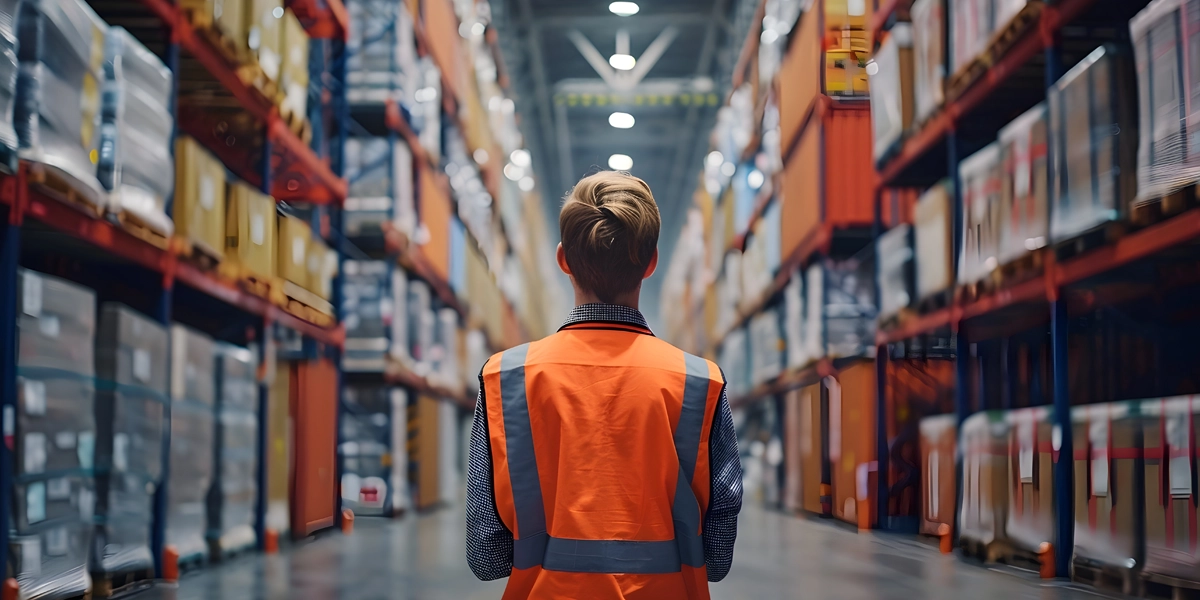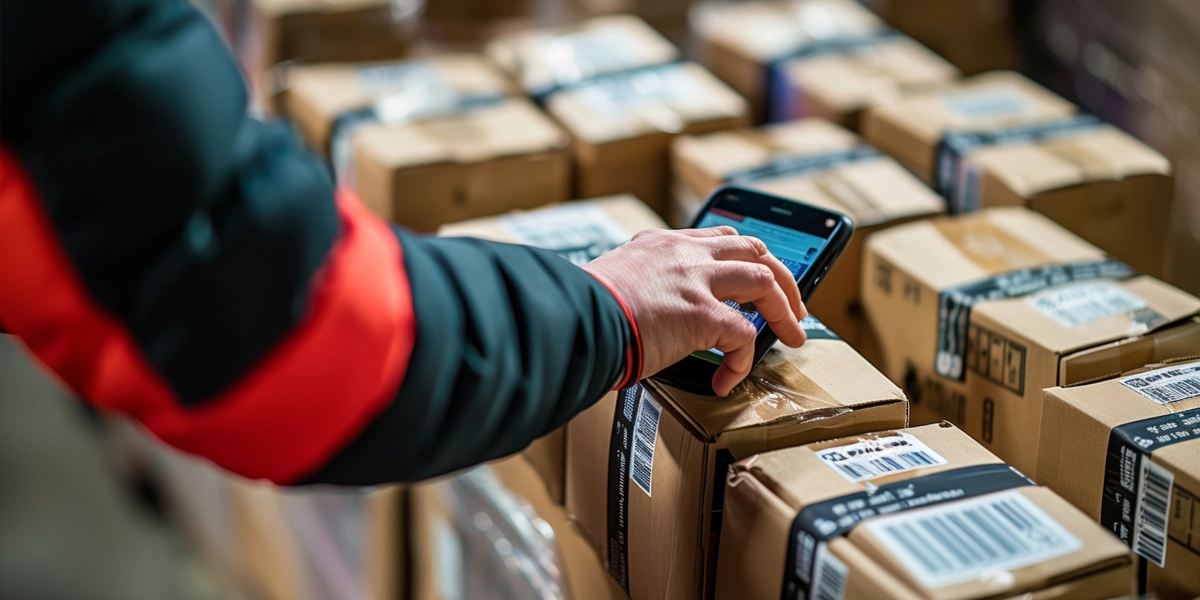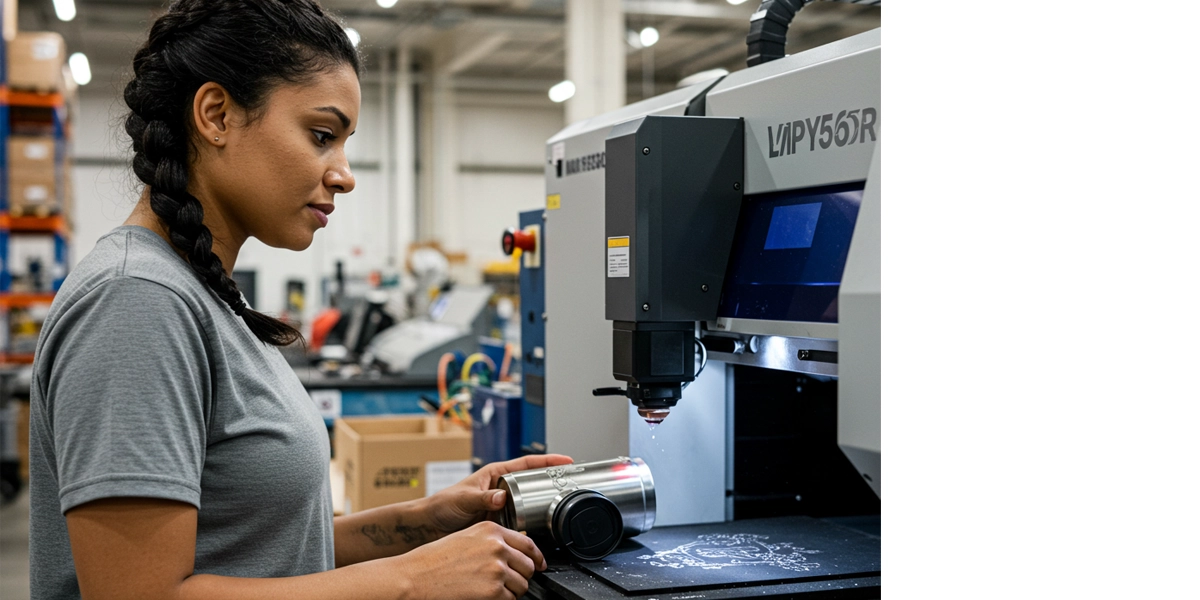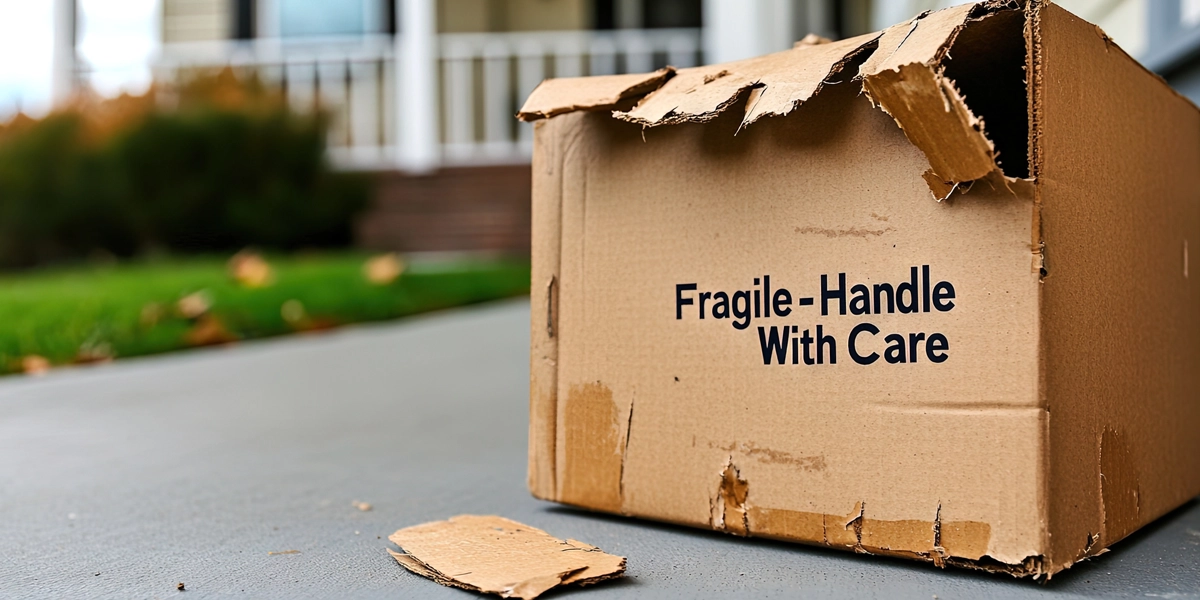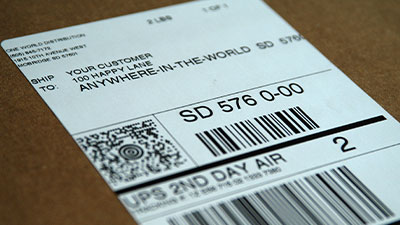In This Article:
Investing in eco-friendly and sustainable fulfillment should be at the top of your list. At its core, eco-friendly fulfillment encompasses a suite of sustainable shipping and handling methods that significantly reduce environmental impact. Shifting towards greener operations is not only a corporate responsibility but also a response to a surge in consumer demand for environmentally conscious solutions.
Your customers are increasingly aware of their carbon footprint, advocating for businesses to adopt practices that protect our planet. Adopting green fulfillment services has become pivotal in meeting shopper expectations and staying competitive in today’s market.
This article will delve into various strategies and partnerships vital for achieving eco-friendly fulfillment. You will learn about:
- The essence of eco-friendly product fulfillment and its benefits.
- The stark environmental implications of traditional fulfillment methods.
- Strategic approaches to sustainable order fulfillment that minimize ecological impact.
- The significance of forging partnerships with suppliers who share a commitment to sustainability.
Understanding Eco-Friendly Product Fulfillment
Eco-friendly product fulfillment services refer to the process of receiving, packaging, and shipping orders in a way that has the least negative impact on the environment. This includes the materials used in packaging and the transportation methods chosen for delivery.
Key Principles of Eco-Friendly Fulfillment
- Waste Reduction: Minimizing waste at every stage of order fulfillment, such as using less packaging material and opting for recyclable or biodegradable options.
- Energy Efficiency: Making warehousing operations more energy-efficient and selecting transportation methods with lower CO2 emissions.
- Inventory Management: Efficiently managing inventory to prevent overproduction and reduce waste.
Role of Third-Party Logistics (3PLs) in Sustainable Fulfillment
Third-party logistics providers (3PLs) play a crucial role in helping businesses achieve their sustainability goals in order fulfillment:
- Optimizing Transportation: Using technology to plan the most efficient delivery routes, reducing fuel consumption and emissions.
- Green Packaging Solutions: Introducing environmentally friendly packaging materials that are still protective and cost-effective.
- Inventory Forecasting: Utilizing data analysis and forecasting tools to predict demand, preventing excess stock and potential waste.
In addition, many 3PLs have adopted renewable energy sources for their operations, further decreasing their carbon footprint. This commitment benefits the environment and aligns with customer expectations for responsible business practices.
For companies looking to prioritize sustainability while maintaining efficiency and cost-effectiveness, partnering with a 3PL that offers eco-friendly fulfillment services can be a significant step forward.
To understand how 3PL works in more detail, it’s worth exploring common logistics approaches that are sustainable.
The Environmental Impact of Conventional Fulfillment Methods
Carbon Emissions
When we examine the traditional way of doing fulfillment, it becomes evident that it significantly impacts the environment. One of the primary concerns is the excessive carbon emissions from transportation vehicles involved in the fulfillment process. Studies indicate that the logistics industry is responsible for a substantial portion of global carbon emissions, with freight transport alone contributing to nearly 8% of worldwide greenhouse gas emissions. This issue is exacerbated by the reliance on fossil fuels like gasoline and diesel, which are major contributors to climate change.
Packaging Waste
Another critical environmental challenge is the problem of packaging waste. With the surge in online shopping, there has been an exponential increase in the use of packaging materials to protect products during shipping. However, a significant portion of this packaging is single-use and non-recyclable, resulting in an alarming amount of plastic waste. In 2019, ecommerce plastic packaging waste was estimated at more than one billion kilograms worldwide. This poses a severe threat as plastic takes hundreds of years to decompose and causes immense harm to wildlife and ecosystems.
Product Returns
In addition to carbon emissions and packaging waste, sustainability is also compromised by the issue of product returns in ecommerce. The convenience of online shopping often leads to impulse buying, resulting in a high return rate for items that customers don’t want or need. This creates additional transportation emissions as these items are sent back to sellers, along with generating more packaging waste. Many returned items cannot be resold and are discarded.
Bracketing
Another huge issue is bracketing, a type of ecommerce shopping where customers frequently return most items. Shoppers purchase multiple product versions—such as different sizes, colors, or styles—to try them out and return the ones that don’t fit, aren’t liked, or are otherwise unsuitable. This type of shopping not only exponentially increases reverse logistics costs for brands but also produces a significant carbon footprint.
To address these environmental challenges, businesses must adopt strategies that minimize their impact. Here are some key approaches that companies should consider:
- Optimizing transportation: Finding ways to make shipping more efficient by utilizing route planning software or consolidating orders into fewer shipments.
- Using eco-friendly packaging: Transitioning to materials that are biodegradable or made from recycled content, while also minimizing the overall amount of packaging used.
- Implementing a reverse logistics system: Establishing a process for handling product returns that allows items to be resold, repaired, or recycled instead of discarded. (Check out our guide on ecommerce returns best practices.)
- Partnering with sustainable fulfillment providers: Collaborating with 3PLs prioritizing environmental responsibility and having robust sustainability practices. (Discover other key factors when choosing a 3PL logistics provider.)
Key Strategies for Sustainable Order Fulfillment
In the journey towards more sustainable practices, there are several key strategies businesses can implement in their order fulfillment processes. These tactics aim to reduce the environmental impact of shipping and handling, resulting in a greener, more efficient operation.
Optimizing Transportation Methods and Routes
A significant aspect of sustainable order fulfillment strategies lies in transportation efficiency. Many companies now optimize their transportation methods and routes to minimize their carbon footprint. This optimization entails strategic planning to ensure that goods are transported most efficiently, reducing unnecessary travel and lowering greenhouse gas emissions.
- Use alternative fuels or electric vehicles whenever feasible
- Choose vehicles that run on biofuels
- Optimize transportation routes for efficiency
Efficient and Eco-Friendly Packaging Solutions
Another central element in sustainable order fulfillment is packaging optimization. The goal here is two-fold: reducing the amount of packaging material used and ensuring those materials are eco-friendly.
- Right-size packages to fit products without excessive empty space
- Switch to biodegradable materials for packaging
- Investing in green technology and infrastructure
Leveraging Technology for Improved Inventory Management
Technology plays an instrumental role in sustainable order fulfillment. Specifically, its application in inventory management and reverse logistics can help reduce the need for unnecessary product returns — a significant contributor to environmental harm in the ecommerce industry. Companies can benefit from sophisticated inventory management systems that streamline operations, reduce picking and packing errors, and improve warehouse picking speed and accuracy.
Incorporating Sustainability in Supply Chain Partnerships
When it comes to sustainable order fulfillment, it’s essential for businesses to collaborate with like-minded partners. One example is the emphasis on supply chain efficiency and sustainability demonstrated by companies like OWD. By working with partners who are committed to reducing environmental impact, businesses can create a more sustainable and efficient supply chain.
Moving forward with these sustainable order fulfillment strategies will significantly reduce a business’s environmental impact and pave the way for more efficient operations and cost savings in the long run.
Building Eco-Conscious Partnerships in the Supply Chain
The suppliers and vendors you decide to work with carry substantial weight toward pursuing eco-friendly fulfillment. These partnerships are pivotal for maintaining a green supply chain and achieving your sustainability goals.
Collaborating with Sustainable Partners
When selecting suppliers and vendors, it’s critical to assess their commitment to sustainability. Look for partners who:
- Demonstrate Environmental Stewardship: Seek out suppliers that have verifiable green credentials or those actively pursuing eco-certifications. Their dedication should be evident in their operations, from energy-efficient manufacturing processes to waste reduction initiatives.
- Adopt Renewable Resources: Prioritize partners utilizing renewable materials and energy sources, thereby reducing reliance on fossil fuels and minimizing ecological footprints.
- Engage in Transparent Reporting: Transparency is a hallmark of responsibility. Partner with vendors who openly disclose their environmental impact, setting a precedent for accountability throughout the supply chain.
- Utilize Reusable Mailers: Encourage customers to reuse the same box for returns and just place the new shipping label over the old one. If a company has a high number of returns, they’re a great option. Arka is a viable option to help make your reverse logistics process more sustainable.
Green Practices across the Supply Chain
Implementing sustainable practices extends beyond individual choices; it requires an integrated approach where every link in the chain operates under ethical and environmentally sound principles. Strive to:
- Ensure Responsible Sourcing: Source materials from providers who uphold stringent environmental protection and social responsibility standards. This may include sustainably harvested resources or fair trade products.
- Set Ethical Manufacturing Standards: Work with manufacturing partners that adhere to ethical labor practices and have a clear commitment to reducing their environmental impact.
As your business aligns itself with eco-friendly suppliers and integrates green practices throughout the supply chain, you lay the groundwork for a resilient, sustainable future that resonates with consumers and preserves our planet. The next natural progression is to leverage technology—another powerful ally in achieving green fulfillment objectives.
The Role of Technology and Innovation in Eco-Friendly Fulfillment
Technology is essential to maintain complete visibility of your logistics operations and optimize fulfillment for sustainability. By embracing state-of-the-art advancements such as machine learning and automation, businesses can completely transform their inventory management processes, leading to substantial reductions in both expedited shipping requirements and packaging waste.
Optimizing Inventory with Advanced Technologies
- Machine Learning: Machine learning algorithms can accurately predict consumer behavior by analyzing extensive datasets. This predictive capability enables businesses to maintain ideal inventory levels, thereby reducing the risk of overstocking and the subsequent need for rush shipping.
- Automation: The realization of streamlined warehouse operations is no longer a distant dream. Automation facilitates quicker order processing while minimizing errors. This level of precision results in lower excess inventory and a decrease in packaging materials that would otherwise contribute to environmental harm.
Emerging Trends in Sustainable Logistics
Innovations within the logistics industry not only drive efficiency but also prioritize environmental stewardship:
- Alternative Fuels & Electric Vehicles (EVs): The shift towards EVs and vehicles powered by alternative fuels has the potential to reduce greenhouse gas emissions associated with product delivery.
- Renewable Energy Sources: Fulfillment centers increasingly incorporate solar panels and wind turbines into their infrastructure, harnessing clean energy and reducing reliance on fossil fuels.
- Drone Delivery: Drones present an exciting opportunity for last-mile delivery, offering an energy-efficient alternative to traditional vehicles, especially for lightweight packages.
Selecting an Eco-Friendly Fulfillment Provider
When businesses are searching for a fulfillment provider that is committed to eco-friendly practices, it is important to consider specific criteria:
- Certifications and Accreditations: Look for providers with environmental certifications, such as ISO 14001 or the Carbon Trust Standard. These accreditations indicate a provider’s commitment to environmental management and reducing their carbon footprint.
- Sustainable Infrastructure: Assess whether potential partners utilize sustainable building features or renewable energy sources in their facilities.
- Fleet Composition: Inquire about the provider’s transportation fleet and whether they incorporate electric vehicles or vehicles running on alternative fuels.
One World Direct stands out as an innovative choice for businesses looking to incorporate eco-friendly fulfillment into their operations. In addition to sustainable fulfillment solutions, OWD offers personalized-to-consumer fulfillment, allowing you to offer product personalization at checkout, which seamlessly integrates with your ecommerce store. You can also take advantage of their call center services to cover all customer inquiries with US-based agents through calls, chat, and email.
Through the utilization of technology and innovation, companies have the opportunity to make significant progress toward eco-friendly fulfillment. The integration of these advancements extends beyond operational enhancements—it showcases a dedication to environmental responsibility that resonates with consumers worldwide.
Taking Action for a Sustainable Future
Adopting eco-friendly practices in your fulfillment process is a step towards achieving your sustainability goals and a strategic move that can positively impact your bottom line. The benefits are two-fold: reducing carbon emissions and packaging waste benefits the environment while meeting the growing consumer demand for green solutions.
Remember: sustainable fulfillment is not a destination, but a journey of continuous improvement.
You might wonder where to start on this journey. The good news: OWD can audit your current logistics operations and guide you on the best ways to improve the sustainability of your efforts. Schedule a complimentary logistics consultation and discover how to lower fulfillment costs, improve delivery speeds, and leverage more eco-friendly solutions.
We urge you to consider the long-term benefits sustainable practices bring to the environment and your business. Let’s take collective responsibility for our planet’s future, one green shipment at a time!
In This Article:
Subscribe to our Newsletter
Tincidunt urna mauris eu quam vulputate lobortis sit. Purus feugiat arcu nunc quisque massa ut.







